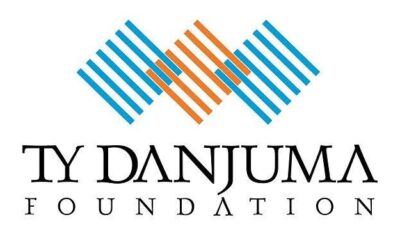CAMPUS REPORTS
JAMB 2025 Results: What the Numbers Say- and What They Don’t

The release of the 2025 JAMB results has raised widespread concern among educators, parents, and stakeholders in the education sector.
With over 1.9 million candidates sitting for the examination, only a shocking 12,421 candidates scored 300 and above, representing just 0.63% of the total. Even more alarming is that over 1.4 million students scored below 200, and only 76 candidates scored 360 and above out of a possible 400. These figures paint a disturbing picture and demand urgent reflection—not just from students, but from all sectors of society.
What went wrong? Some believe our secondary schools have lost their former glory. Once a beacon of academic pride, the standard of teaching has declined drastically. Many public schools operate with insufficient staff, outdated materials, and overcrowded classrooms. Even in private schools, commercial interests sometimes outweigh a genuine commitment to learning. Students are often drilled for exams rather than taught to understand and explore.
But it would be unfair to place all the blame on the schools. There is a rising culture among students that discourages hard work and embraces shortcuts. The overdependence on “expo,” miracle centres, and special centres has created a generation that is more confident in cheating than in studying. Many students now prepare for JAMB not by reading their textbooks, but by trying to find the nearest source of leaked questions. In doing so, they rob themselves of the foundation needed to succeed.
Parents are not exempt from this blame. In some cases, they fund exam malpractice in the hope of securing a “future” for their children, unknowingly contributing to a much bigger problem. Rather than correcting bad habits, they enable them, reinforcing the belief that success can be bought rather than earned. When home training fails, the school system is left to clean up a mess it did not create.
Another major factor is the influence of social media. Today’s students are growing up in a digital world filled with distractions. Platforms like TikTok, Snapchat, and Instagram demand constant attention, making it harder for young people to focus on their studies. Many now spend more hours scrolling than studying. In a world where instant gratification is the norm, few have the patience to sit through difficult concepts or read long chapters.
All of these problems reflect a broader issue in Nigeria: the erosion of values. Hard work is no longer seen as the path to success. Corruption, nepotism, and shortcuts dominate every sector of society, and students are only mirroring what they see. When graduates remain jobless, and criminals thrive, it becomes difficult to convince teenagers that education is worth it.
As JAMB Registrar, Prof. Ishaq Oloyede, noted while announcing the results: “The performance is not as good as we had last year. There is a sharp drop. We must look inward and fix what is wrong.”
The 2025 JAMB result should be a wake-up call. We need to revive our schools, retrain our teachers, and rebuild our homes. We need to show young people that there is dignity in labour and that education, though not always easy, is still a reliable path to a better life. Until we do that, we will continue to produce results that reflect not just academic failure, but a deeper societal decay.
Discover more from Asiwaju Media
Subscribe to get the latest posts sent to your email.
-

 NEWS5 days ago
NEWS5 days agoPastor Paul Enenche Rejects ₦30 Million Donation From Kebbi Government During Crusade
-

 NEWS6 days ago
NEWS6 days agoTinubu Blasts IGP Egbetokun Over Failure to Arrest Benue Killers
-

 POLITICS1 day ago
POLITICS1 day agoEbonyi Rep Member Threatens Constituent for Supporting Charity Foundation
-

 POLITICS5 days ago
POLITICS5 days agoTight Security In Uyo As Tinubu Set To Attend Governor Umo Eno’s Grand Welcome Into APC
-

 NEWS6 days ago
NEWS6 days agoPresident Tinubu Visits Hospitalized Victims of Benue Massacre
-

 INSIDE NYSC4 days ago
INSIDE NYSC4 days agoALGON Chairman Donates Transformer to NYSC Ebonyi Orientation Camp, Ends Years of Power Outage
-

 JOBS/SCHOLARSHIPS1 day ago
JOBS/SCHOLARSHIPS1 day agoCDCFIB Announces Nationwide Recruitment into Paramilitary Agencies
-

 NEWS5 days ago
NEWS5 days agoCall For Applications: Green Money Project for Nigerian Youth in Agribusiness 2025
-

 NEWS4 days ago
NEWS4 days agoArmed Herdsmen Attack Benue Community 48 Hours After Tinubu’s Visit
-

 NEWS4 days ago
NEWS4 days agoSPECIAL REPORT: Nigeria’s Slow Descent into Anarchy; Warnings Ignored, Blood Still Spills
-

 NEWS6 days ago
NEWS6 days agoEbonyi Commissioner Gifts Toyota Corolla to Personal Assistant for Dedicated Service
-

 SPORTS5 days ago
SPORTS5 days agoVictor Osimhen Recalls Cleaning Gutters For N30 During Childhood Struggles




























